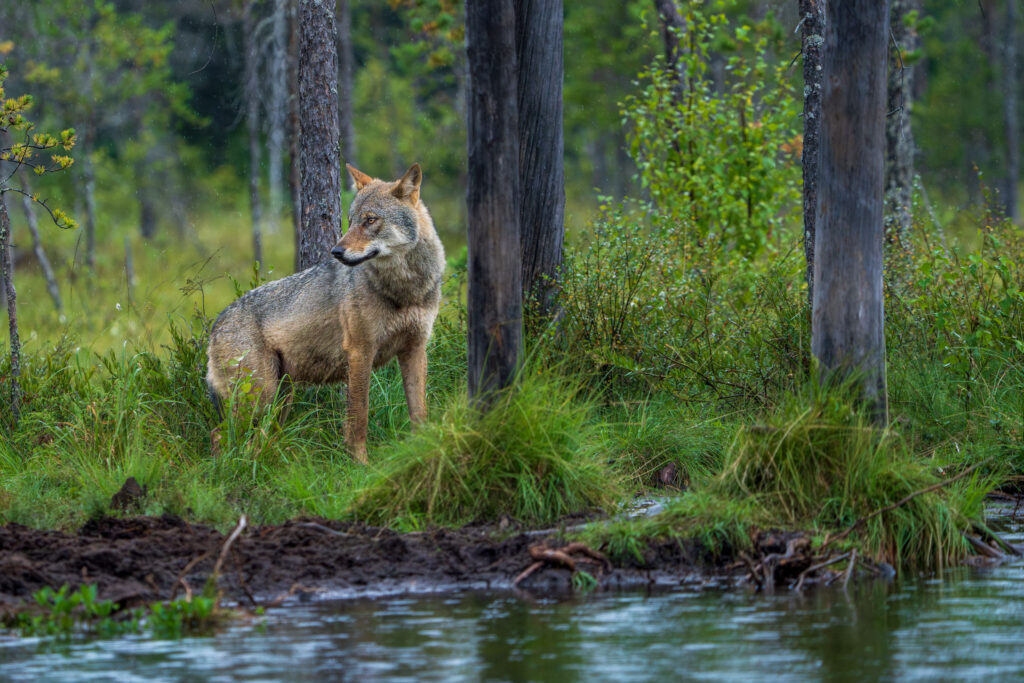Representatives of a qualified majority of EU Member States decided on Wednesday to adopt a Commission proposal on lowering the protection level of wolves in the EU, claiming that their increasing numbers pose a danger, particularly to livestock.
The decision was taken by Coreper (Committee of the Permanent Representatives of the Governments of the Member States to the EU), which coordinates and prepares the work of the meetings of the Council. A Commission spokesperson welcomed the decision and said that the Commission now looks forward to its formal adoption by the Council.
Under the Bern Convention and EU’s 1992 ‘Habitats’ directive, wolves in most of Europe enjoy ‘strict protection’ status, with provision for exemptions. The Commission proposed last December to change the international status of wolves from ‘strictly protected' to ‘protected' based on new data on increased populations and impacts.
However, a decision on the proposal would require a qualified majority which it did not receive during the Belgian EU Presidency. Some Member states opposed the proposal or indicated doubts. Concerns were raised about the scientific data and lack of evidence pointing to a favorable conservation status in the EU.
In April, the Belgian EU Presidency drafted a steering note ahead of a Council working group to discuss the protection status of wolves in the EU, expressing legal and other doubts about the European Commission’s proposal. Belgium wanted to evaluate the proposal from a legal point of view and avoid any negative consequences for the EU as a Party to multilateral environmental agreements.
This apparently did not result in any new proposal. The Commission spokesperson told The Brussels Times that the proposal adopted by Coreper is the same in substance as its original proposal, although he did not exclude technical amendments.
For more details and the voting of the Member States he referred to the Council but the voting has not been disclosed. Reportedly, there was no qualified majority in the days before the meeting. A diplomatic source told The Brussels Times that Belgium had abstained.
A large coalition of civil society and animal welfare organisations published to no avail on 19 September an open letter calling on the EU Member States to reject the Commission proposal. In the letter, they argued that peaceful coexistence with large carnivores is possible.
They proposed to strengthen preventive measures such as the use of fences and sheepdogs and make them more accessible to farmers. Proper protection of wolves should be enforced, ensuring that illegal wolf hunting is eradicated and the EU's Habitats Directive is upheld. This would support efforts made for the recovery of wolf populations in the EU.
The Commission admits that the downgrading of the protection status of wolves will have consequences for hunting. If a species is ‘protected' (as opposed to ‘strictly protected'), hunting can be authorised, taking into account the conservation of the populations. The proposal aims at giving more flexibility to the Member States, the spokesperson explained. The burden falls on the Member States to ensure that the favourable conservation status of wolves is achieved.
Sweden is the only country in the EU that allows culling of wolves (apart from minor exceptions), in something the country calls ‘licensed hunting’. It is a population decreasing method that kills off innocent animals in an arbitrary fashion, instead of focusing on particular individuals that have actually showed problematic behaviour, writes Swedish journalist Misha Istratov in The Brussels Times.
This has led to that the already extremely fragile, inbred and threatened Swedish wolf population has dropped by almost 20 percent in just a year to 375 individuals. In 2011, because of the hunting, the Commission launched an infringement procedure against Sweden but it was never resolved. Now the procedure will be cancelled.
“Wolves are our allies, not our enemies and it is crucial to protect them,” commented Léa Badoz, Wildlife Programme Officer, Eurogroup for Animals. “Member States are dangerously failing their mission to protect wild animals and our shared ecosystem. This is a very outrageous move and shows that they are ignoring their citizens’ calls and science.”
M. Apelblat
The Brussels Times

